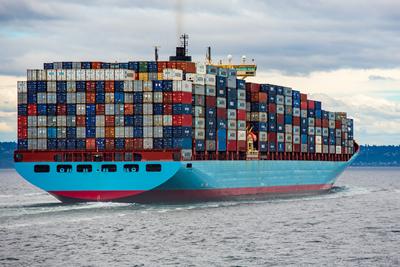Deepening relationship with Maritime and Coastguard Agency to boost Southampton teaching and research

The University of Southampton and the Maritime and Coastguard Agency (MCA) are strengthening their partnership to bolster emerging UK technologies for autonomous ships and emissions reduction.
The organisations have signed a Memorandum of Understanding that will join maritime expertise with top level research programmes and offer students special training, internships and PhD placements at the MCA.
Under the new partnership, staff from the MCA will also be guest speakers at the University on courses related to marine design and engineering.
University President and Vice-Chancellor Professor Mark E Smith and MCA Chief Executive Brian Johnson have each expressed their delight at formalising the connection, which was remotely signed by each party during current COVID-19 restrictions.
Professor Damon Teagle, Director of the Southampton Marine and Maritime Institute (SMMI) says: “There are opportunities for the UK to lead the vanguard of global maritime in tackling issues such as climate change, decarbonisation, maritime pollution of air and waters, and the welfare of seafarers.
“We need to safely embrace and develop enabling regulations for nascent technologies such as truly zero-carbon future fuels, and high levels of automation that will improve the efficiency and reduce the environmental impacts of the globally roaming ships that carry 90 percent of world trade. It is important that Government organisations have prompt access to the best research and visions.”
Several initiatives have facilitated knowledge exchange between the MCA and the SMMI in recent years. Southampton engineers Dr Richard Wills and Professor Andrew Cruden have worked closely with the MCA to support the updating of codes and regulations to take account of safety risks attached to the potential use of Lithium Ion battery technology in the shipping industry.
These and other activities are made possible through support from the UKRI Engineering and Physical Sciences Research Council (EPSRC) and Shell Shipping and Maritime, and are aligned with the aims of the MCA’s Maritime Future Technologies team and Southampton’s Centre for Maritime Futures. The Centre is at the heart of a major collaboration between Shell, the SMMI and industry partners who come together on projects aimed at improving the efficiency of current and future ship designs to make the decarbonisation of large, ocean-going ships a realistic prospect in a shorter timescale.